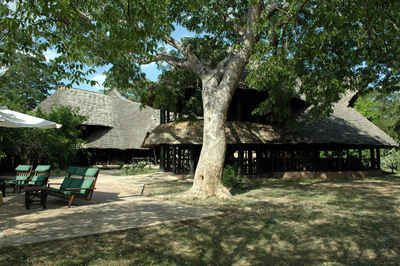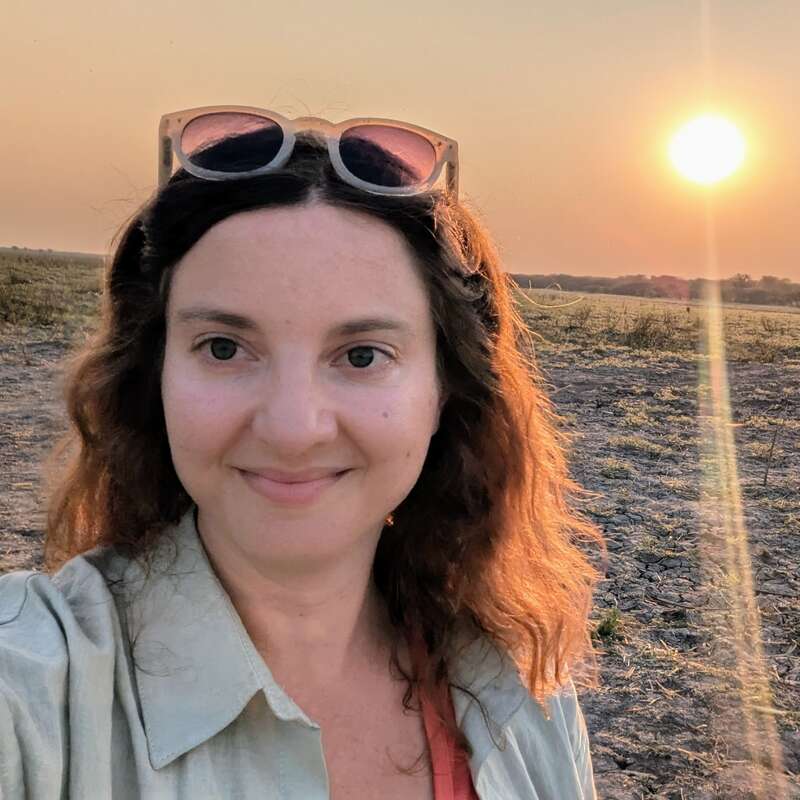About Rufiji River Camp
One of the first camps to be established in Nyerere National Park (formerly the Selous Game Reserve), Rufiji ...
... River Camp has a fine location, on a bank several metres above the Rufiji River at the eastern end of the reserve’s photographic area. The camp spreads along a considerable length of the river and the tents are reasonably well-spaced. The public areas are also large, with room for some privacy.
For a relaxed, down-to-earth stay in Nyerere National Park, Rufiji River Camp is a good choice. The camp is clean and comfortable with a pleasant, unpretentious air and reasonable prices. From the front of the camp, the views across the Rufiji are impressive, and the scene is frequently dominated by hippos wallowing and honking nearby.
Our view
For a relaxed, down-to-earth stay in Nyerere National Park, Rufiji River Camp is a good choice. The camp is clean and comfortable with a pleasant, unpretentious air and reasonable prices. From the front of the camp, the views across the Rufiji are impressive, and the scene is frequently dominated by hippos wallowing and honking nearby.
Accommodation
14 tents
Children
Best for aged 12+
Open
1st June to 31st March
Activities

4WD Safari

Birdwatching

Boat trip

Fishing

Fly-camping

Guided walking safari

Private activities
Traveller reviews of Rufiji River Camp
13 real, un-edited reviews from Expert Africa's travellers.
Arrived 18 Aug 2016, 4 nights
"Dramatic location overlooking Rufiji River"
Overall rating: Excellent
Arrived 16 Jun 2016, 4 nights
"Rufiji River Camp Excellent Safari"
Overall rating: Excellent
Arrived 9 Oct 2015, 3 nights
"Improved Greatly"
Overall rating: Excellent
Arrived 9 Sep 2014, 3 nights
"Rufiji a great start to a safari."
Overall rating: Excellent
Arrived 25 Sep 2010, 5 nights
"Rufiji River Camp review"
Overall rating: Good
Arrived 18 Oct 2009, 4 nights
"Excellent team -"
Overall rating: Excellent
Arrived 11 Oct 2009, 3 nights
"Great view on the hippos in Rufiji River Camp"
Overall rating: Good
Arrived 9 Nov 2008, 2 nights
"Rufiji River Camp review"
Overall rating: Good
Arrived 20 Oct 2008, 3 nights
"Rufiji River Camp review"
Overall rating: Good
Arrived 7 Sep 2008, 4 nights
"Excellent introduction to African safaris"
Overall rating: Good
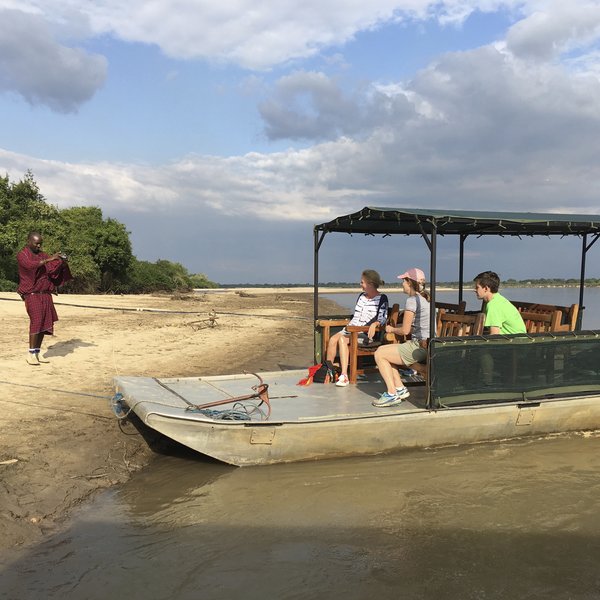
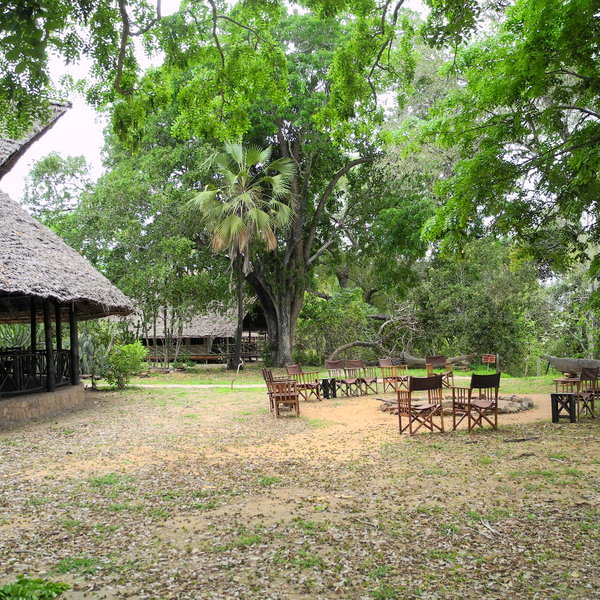
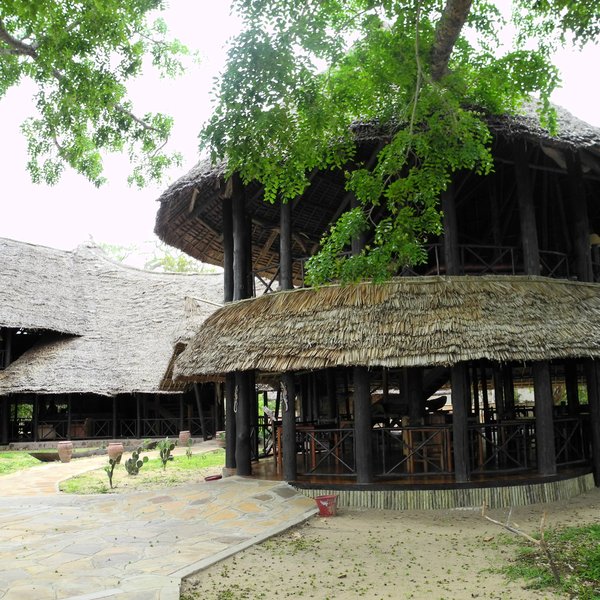
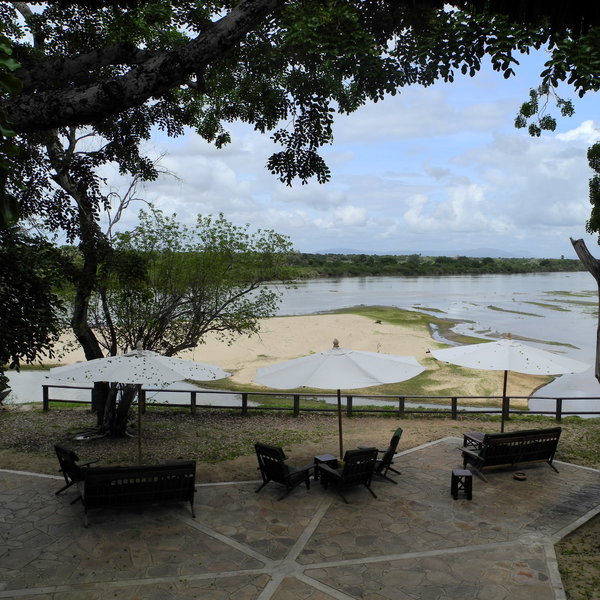
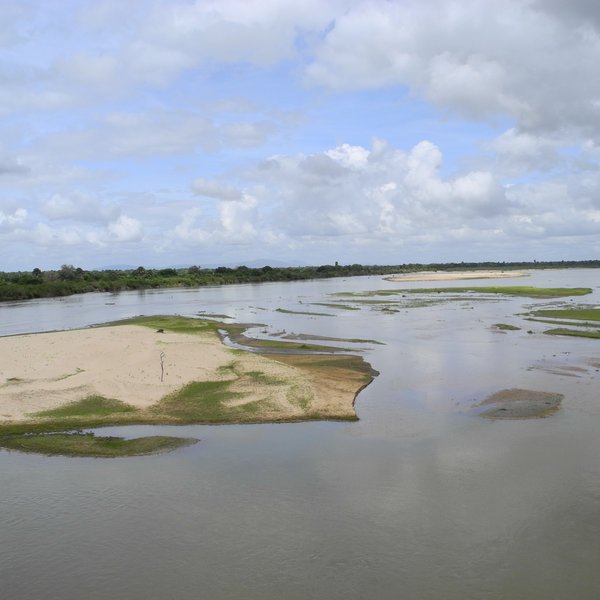
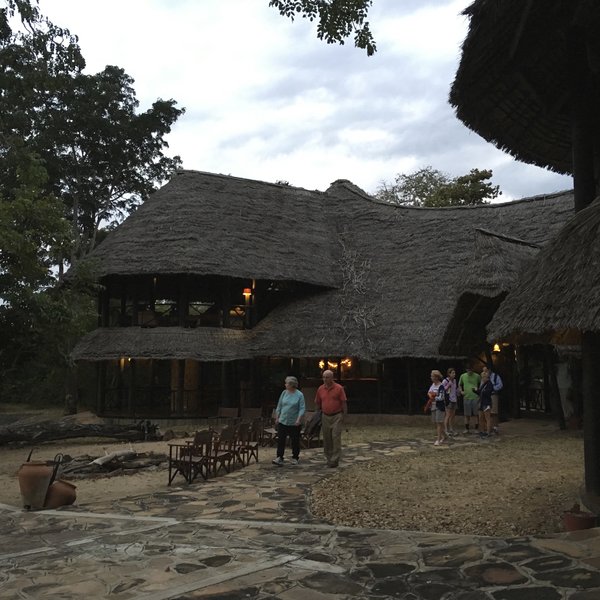
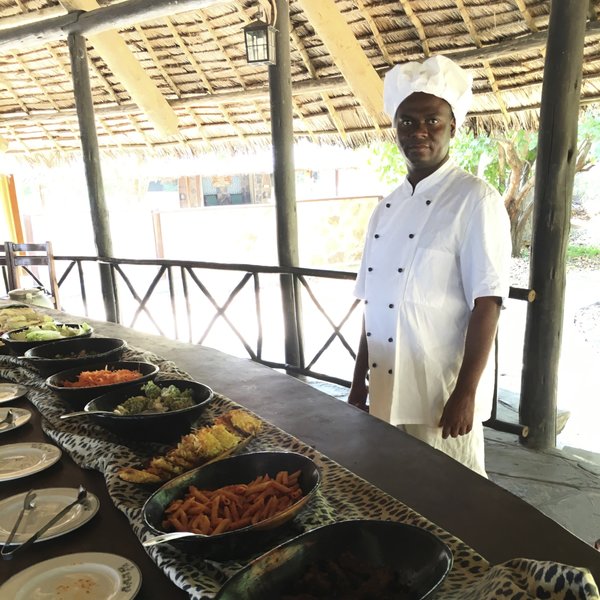
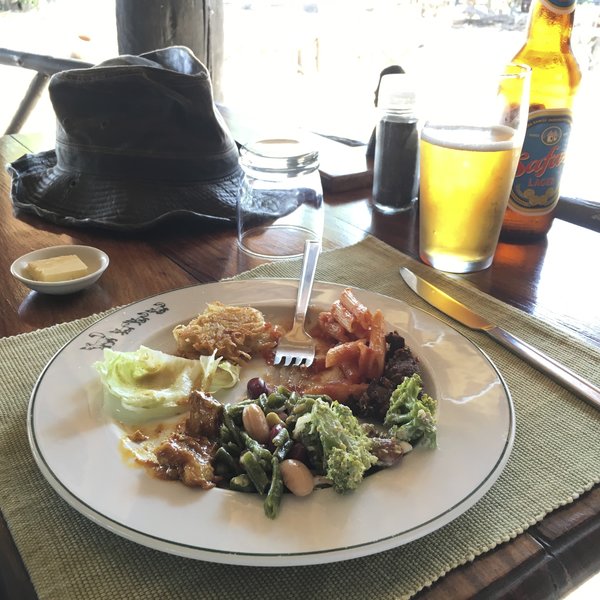
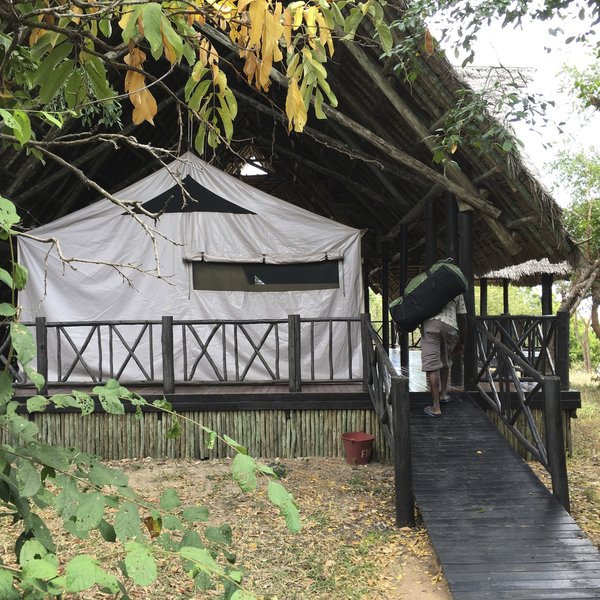
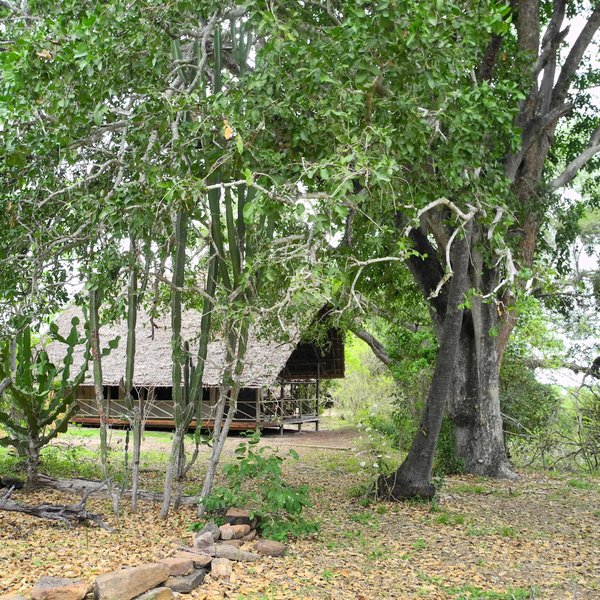
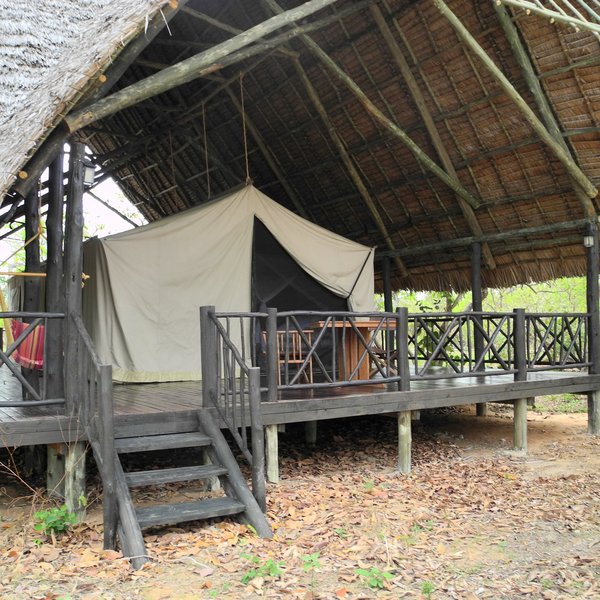
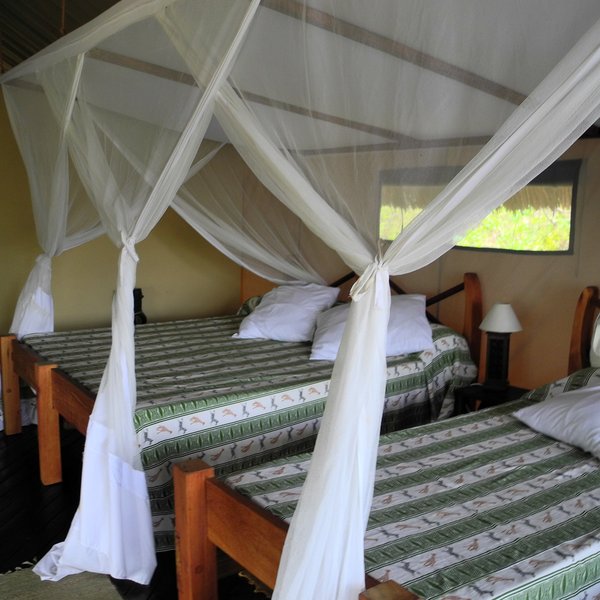
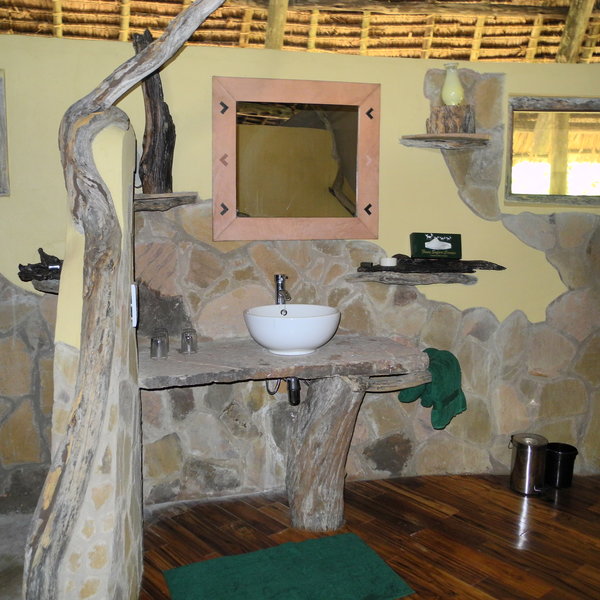
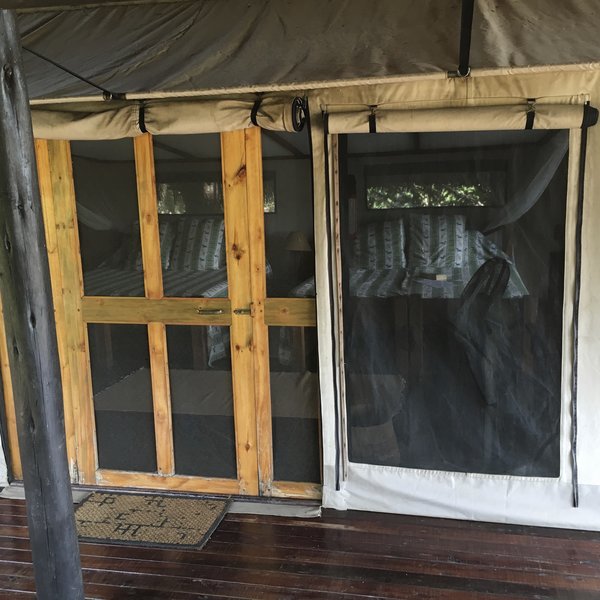
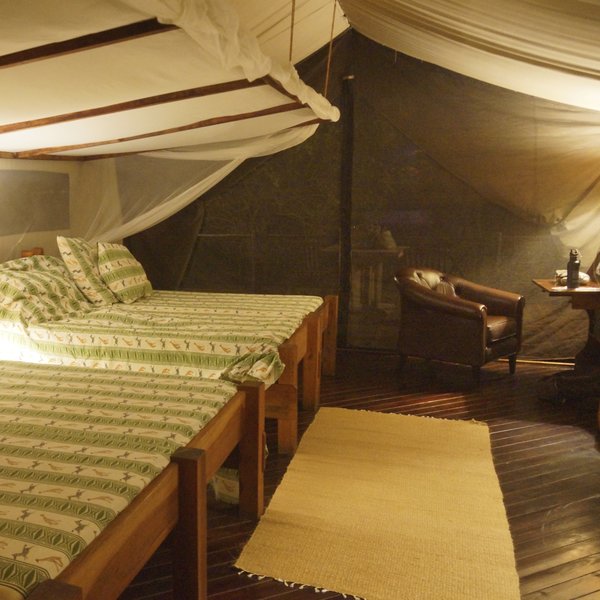
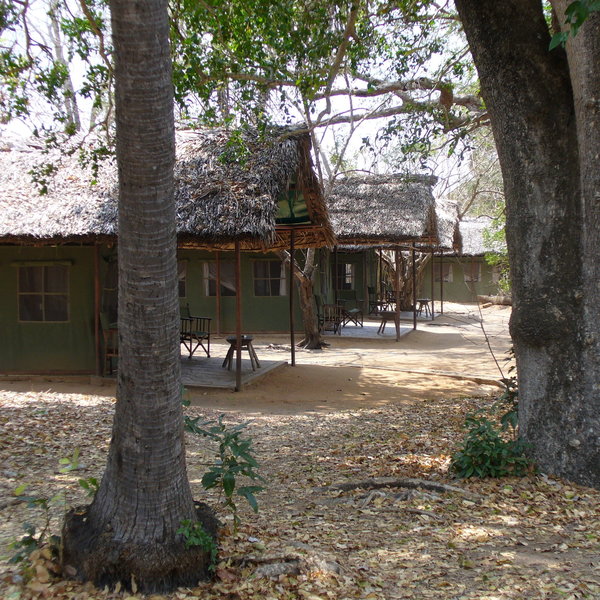
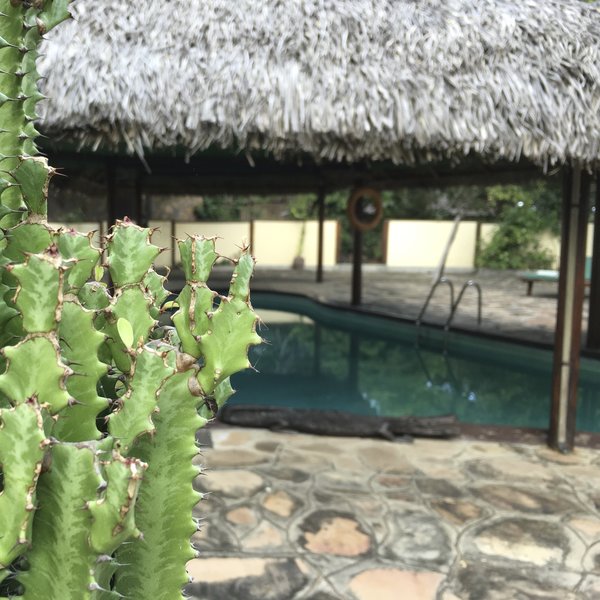
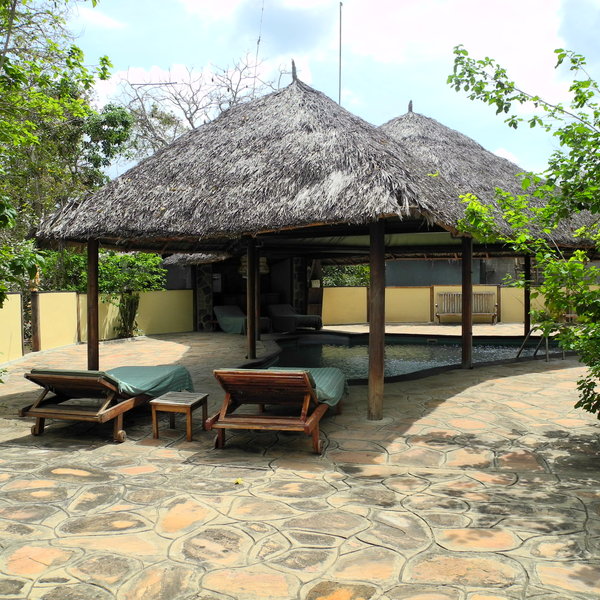
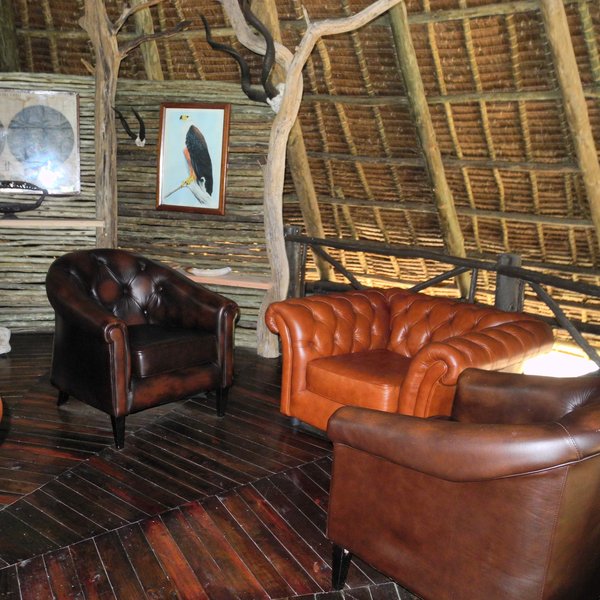
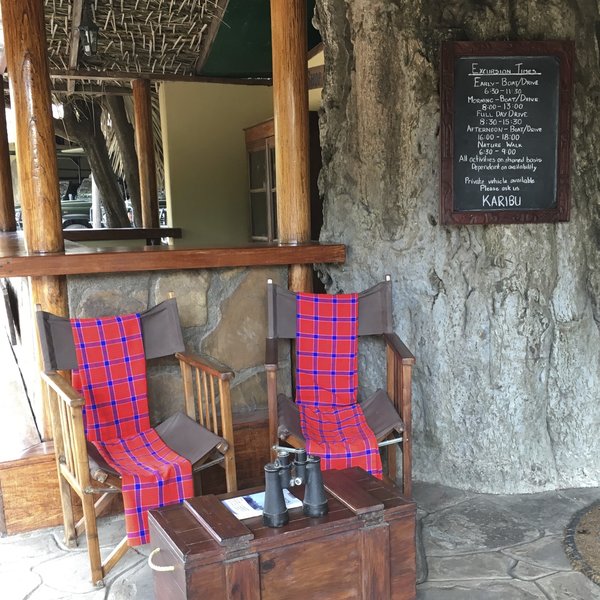
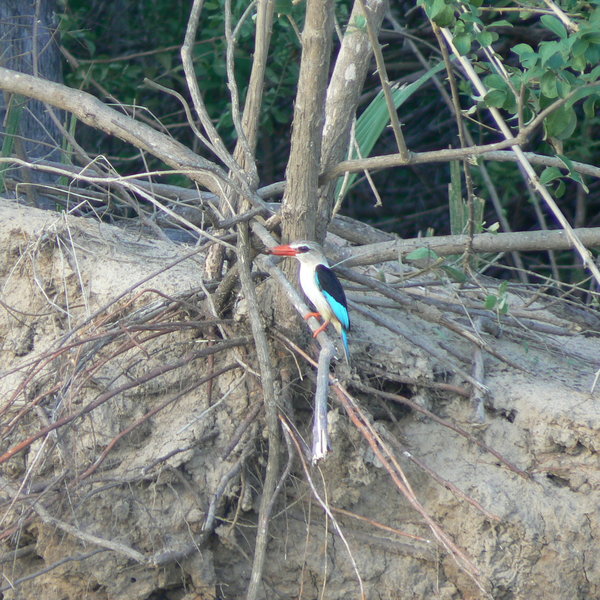
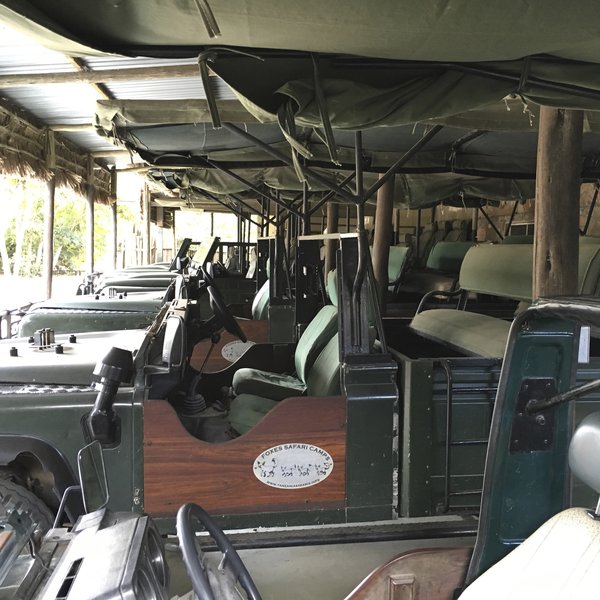
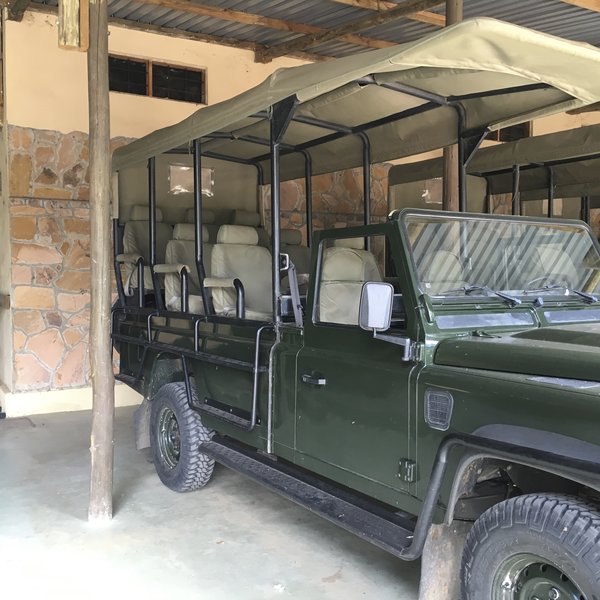
Expert Africa's gallery
When we travel we take lots of photos ourselves to give you a real and un-edited view of the safaris. See our 42 pictures of Rufiji River Camp to get the candid view.
View galleryRufiji River Camp: Our full report
One of the first camps to be established in Nyerere National Park (formerly the Selous Game Reserve), Rufiji ...
... River Camp has a fine location, on a bank several metres above the Rufiji River at the eastern end of the reserve’s photographic area. The camp spreads along a considerable length of the river and the tents are reasonably well-spaced. The public areas are also large, with room for some privacy.
At the heart of Rufiji River Camp is a large central area with wonderful views over the Rufiji River. The lounge and small library, bar and dining area are all under one high thatched roof with lovely stone floors and comfortable soft furnishings. A few old board games are dotted around for playing before or after dinner. There’s a second floor to this area too, providing more seclusion and good spots for taking in the scene. The whole area has a rustic African feel to it, with thatched roofs, stone floors and the occasional piece of carved furniture.
Outside, some simple wooden seating is set around a campfire, and set a little further back from the river is Rufiji’s shaded swimming pool, which stays very cool in the heat of the day. There are loungers around the pool for those wishing to relax and sunbathe in between safari activities.
At the heart of Rufiji River Camp is a large central area with wonderful views over the Rufiji River. The lounge and small library, bar and dining area are all under one high thatched roof with lovely stone floors and comfortable soft furnishings. A few old board games are dotted around for playing before or after dinner. There’s a second floor to this area too, providing more seclusion and good spots for taking in the scene. The whole area has a rustic African feel to it, with thatched roofs, stone floors and the occasional piece of carved furniture.
Outside, some simple wooden seating is set around a campfire, and set a little further back from the river is Rufiji’s shaded swimming pool, which stays very cool in the heat of the day. There are loungers around the pool for those wishing to relax and sunbathe in between safari activities.
Well laid-out pathways lead to 14 en-suite tents, spaced along the river in a lush stretch of woodland populated by vervet monkeys and numerous birds – and occasionally visited by more exciting large mammals. There are three pairs of family tents, sleeping up to four people and connected by wooden platforms. These family units also all have their own, private plunge pools.
Each tent has a stone or wooden deck, with a table and two chairs: a pleasant place to relax between safari activities. Inside, the tents are simple in style and boast little in the way of luxury, but they are clean and have comfortable, are pleasantly decorated with colourful African prints, are are furnished with a hanging space for your clothes and a writing desk. Floor-standing fans and mesh-covered windows keep conditions reasonably cool. Torches, a whistle and insect repellent are provided.
The bathrooms are situated through a door at the back of the tents. These too, are simple yet large and clean, with a shower, a bidet, a single washbasin and a flush toilet. Soap and shampoo are also supplied.
When we last visited Rufiji River Camp in 2016, the camp had recently been renovated. The newer tents are significantly more spacious and they all have two double beds. The tents also benefit from electric plug sockets, which were previously missing, and having just been refurbished, they now have a brighter, fresher feel to them.
Rufiji River Camp offers a range of activities, all accompanied by camp guides who are very friendly and have a reasonable knowledge of the wildlife. As well as boat safaris on the Rufiji River and walking safaris from the camp, there are game drives encompassing three nearby lakes, including a full-day safari with a packed lunch. For the adventurous who wish to experience more of the bush, there is also the option of fly-camping for a few nights. The vehicle fleet at the camp consists of 3 Maruti jeeps with beach seats, taking four passengers, 3 old Land Rover Defenders and 3 new Land Rover Defenders.
There is a fairly formulaic approach to activities here, common to many camps in Nyerere National Park. Guided walks run from 6.30am to 9am; boat trips or game drives from 06.30 to 11.30 (with a bush breakfast) or after breakfast from 8.30 to 1pm; then in the afternoon from 4-6pm. Full-day game drives can also be arranged, with a picnic lunch.
Activities
4WD Safari
Birdwatching
Boat trip
Fishing
Fly-camping
Guided walking safari
Private activities
Families & children
- Attitude towards children
- Responsible older children are welcome at Rufiji River Camp in accordance with the restrictions below, but they are very much their parents’ responsibility.
- Property’s age restrictions
- There is no age restriction at Rufiji River Camp. Children under 12 are not allowed on walking safaris in the Selous.
- Special activities & services
- With advance notice, early dinners can be prepared for children.
- Equipment
- No specific equipment is provided, though there are triple rooms for parents to share with a child.
- Generally recommended for children
- Yes although we’d suggest at least age 12. Though there are no special facilities for children at the camp, there is a lovely pool to keep them occupied when not out on safari.
- Notes
- Rufiji is quite large, and the staff does not have the capacity to help look after children staying at the camp. Parents should also be aware that the camp is not fenced and wildlife can pass through at any time – children should not be left unaccompanied.
Food & drink
- Usual board basis
- Full Board & Activities
- Food quality
- The food served during our visits was simple and tasty standard camp food, with much of it grown on a local farm. All dining tables overlook the river under the big roof, or out on the deck.
Breakfast at Rufiji River Camp is served at 7.00am before the morning activities and usually consists of eggs (cooked however you want), toast and fresh fruit, as well as pastries such as cinnamon rolls.
Lunch is a buffet served at 1.00pm. Last time we ate lunch at the camp they were serving a tasty buffet of well prepared salads and other dishes, including some tough steak strips and a very good mango relish. There was also a good vegetarian dish of crisp broccoli florets and cashews in a creamy sauce. Bananas and coconut sauce finished the meal.
Dinner, at 8.00pm, is a three-course set meal. On our last visit we enjoyed a starter of tomato and olive soup, followed by a buffet of roast potatoes, ogali, green beans, carrots, and roast pork. For dessert we had a rhubarb crumble and custard. - Dining style
- Individual Tables
- Dining locations
- Indoor and Outdoor Dining
- Drinks included
- Tea and coffee are included in the rates at Rufiji, but no other drinks. Beers cost around US$4, a large bottle of water US$2, and wine around US$20 a bottle. Only one 500ml (half-litre) bottle of drinking water per day is provided to each guest free of charge in the tents. Water bottles consumed in the public areas or taken back to the tents are added to your bill.
Getting there
- Location
- Nyerere National Park, Tanzania
- Ideal length of stay
- 3 nights to make the most of the activities on offer.
- Directions
- The Nyerere National Park is a 45-minute flight from Dar es Salaam, then it is only a five-minute drive to Rufiji River Camp. Alternatively, it is around a six-hour drive from Dar – depending on the weather and therefore the state of the roads.
- Accessible by
- Fly-and-Transfer
Communications
- Power supply notes
- Generator hours are 05:45-06:30, 09:30-12:00, 14:00-15:00 and 18:15-22:00. Otherwise, solar power is used and solar water heaters for hot water.
There are UK-style electric sockets in the tents for guests to charge batteries and devices.
There is a torch and solar lamp in each tent. - Communications
- For all intents and purposes you should consider yourself out of contact. There is intermittent cellphone reception (Airtel, not Vodafone). Internet is not available in camp.
- TV & radio
- There is no TV at the camp.
- Water supply
- Other
- Water supply notes
- Water is pumped from the river, filtered and treated. The best pressure is during the hours when the generator is working. During our stay in 2016, we found water pressure was generally poor. A limited supply of bottled drinking water is provided to guests free of charge. Extra bottles have to be purchased.
Health & safety
- Malarial protection recommended
- Yes
- Medical care
- On site first aid can be administered and various medications are kept in the camp. In severe emergencies Rufiji can arrange for clients to be flown out from the nearby airstrip.
- Dangerous animals
- High Risk
- Security measures
- Nyerere National Park has a large population of dangerous game and Rufiji River Camp is unfenced, so all guests are escorted to their rooms after dark. There are also camp guards on duty 24 hours a day. The local vervets can be a menace so it's important to keep tents closed.
- Fire safety
- There are fire extinguishers outside every tent and in key areas such as the reception, kitchen and workshop.
Useful info
- Disabled access
- On Request
- Laundry facilities
- Laundry is complimentary.
- Money
- There are no money exchange facilities here. There is a small digital safe in every tent.
- Accepted payment on location
- For payment of extras, Rufiji River Camp accepts payment in cash US dollars, euros, pounds and Tanzanian shillings. Visa and Master Card are accepted but there is a 5% surcharge.
Plan and book your trip with Expert Africa
All of our trips are tailor-made, so we'll always adapt them to suit you. Talk to an Expert and let us plan and arrange your perfect trip.

Talk to an Expert
Call or email us now! We’ll match you with the Specialist in our team who is best suited to help you. Then together we can start planning your trip.

Set up your itinerary
Based on our experience and your ideas, your specialist will create a detailed, costed itinerary. We’ll refine it together, until we have a trip that you’re perfectly happy with.

Prepare for your trip
The same Specialist will make the seamless arrangements for your trip, send you detailed travel documents, and be available to answer any questions before you depart.

Travel with peace of mind
After you set off, you’ll be cared for by our partners in Africa, most of whom have worked with Expert Africa for decades. And if you ever need us urgently, we’re available 24/7.

When you return
We love to learn about your trip, and so will always be grateful if you’ve the time to give feedback to your Specialist when you return.
Rufiji River Camp's location
Look closer at the environment and surroundings of Rufiji River Camp.
Other lodges in Nyerere National Park
Alternative places to stay in this same area.
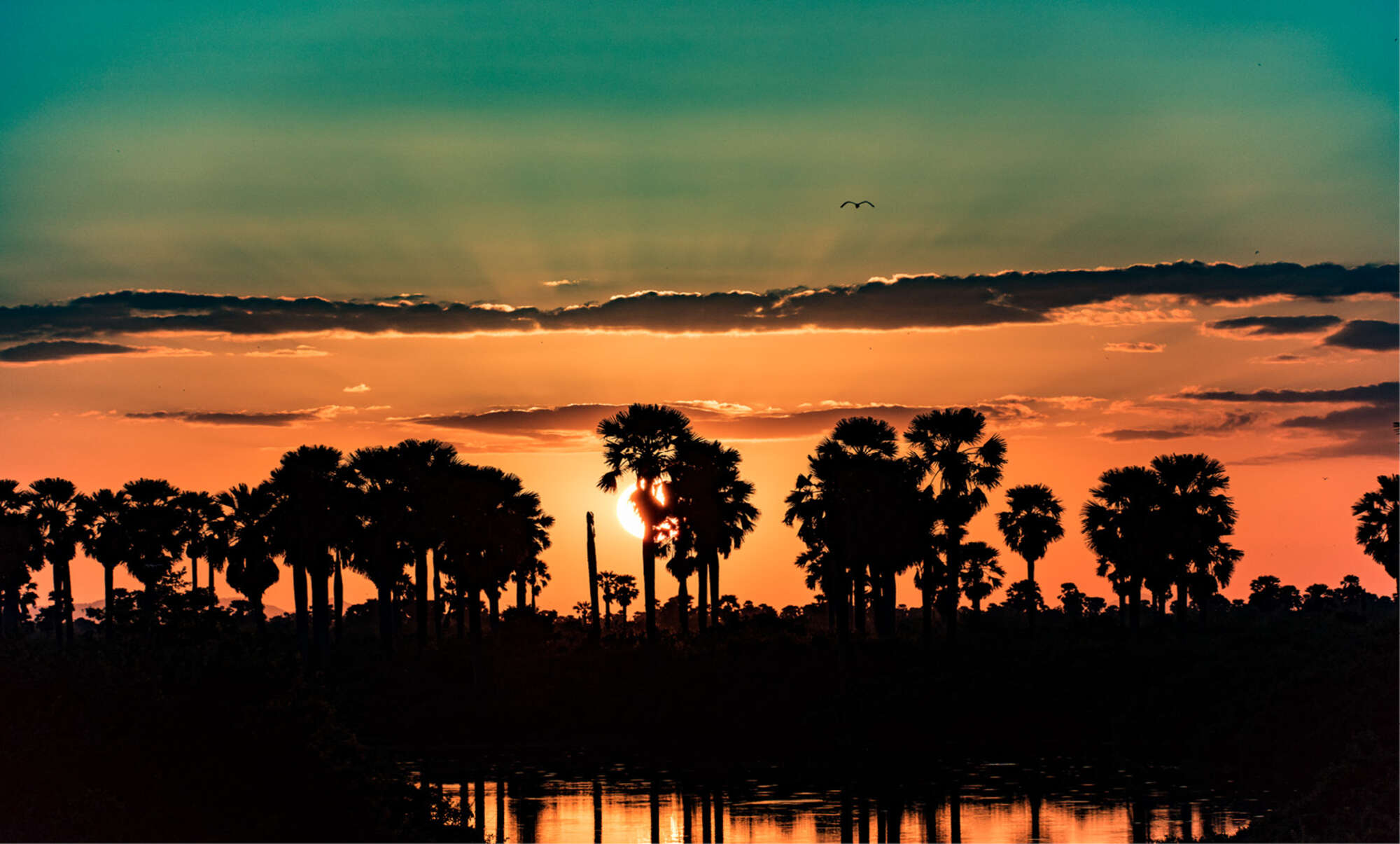
Impala Camp
Impala Camp is a comfortable, excellent-value camp with colourful tented rooms raised on platforms, good guiding and tasty food.
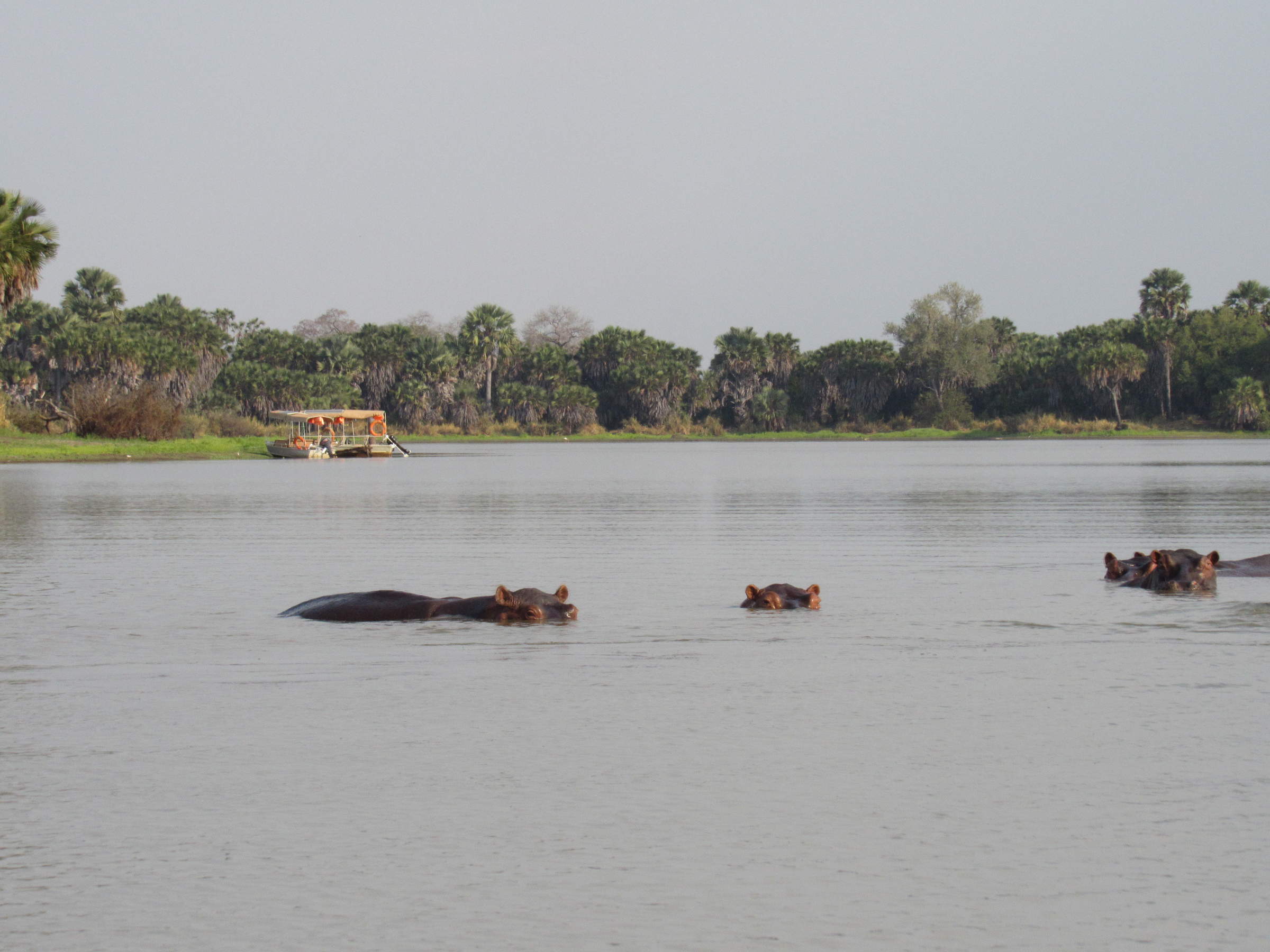
Lake Manze Camp
Lake Manze Camp is a rustic, lakeside bushcamp in Nyerere National Park that offers a great wilderness experience and doesn’t cost the earth.
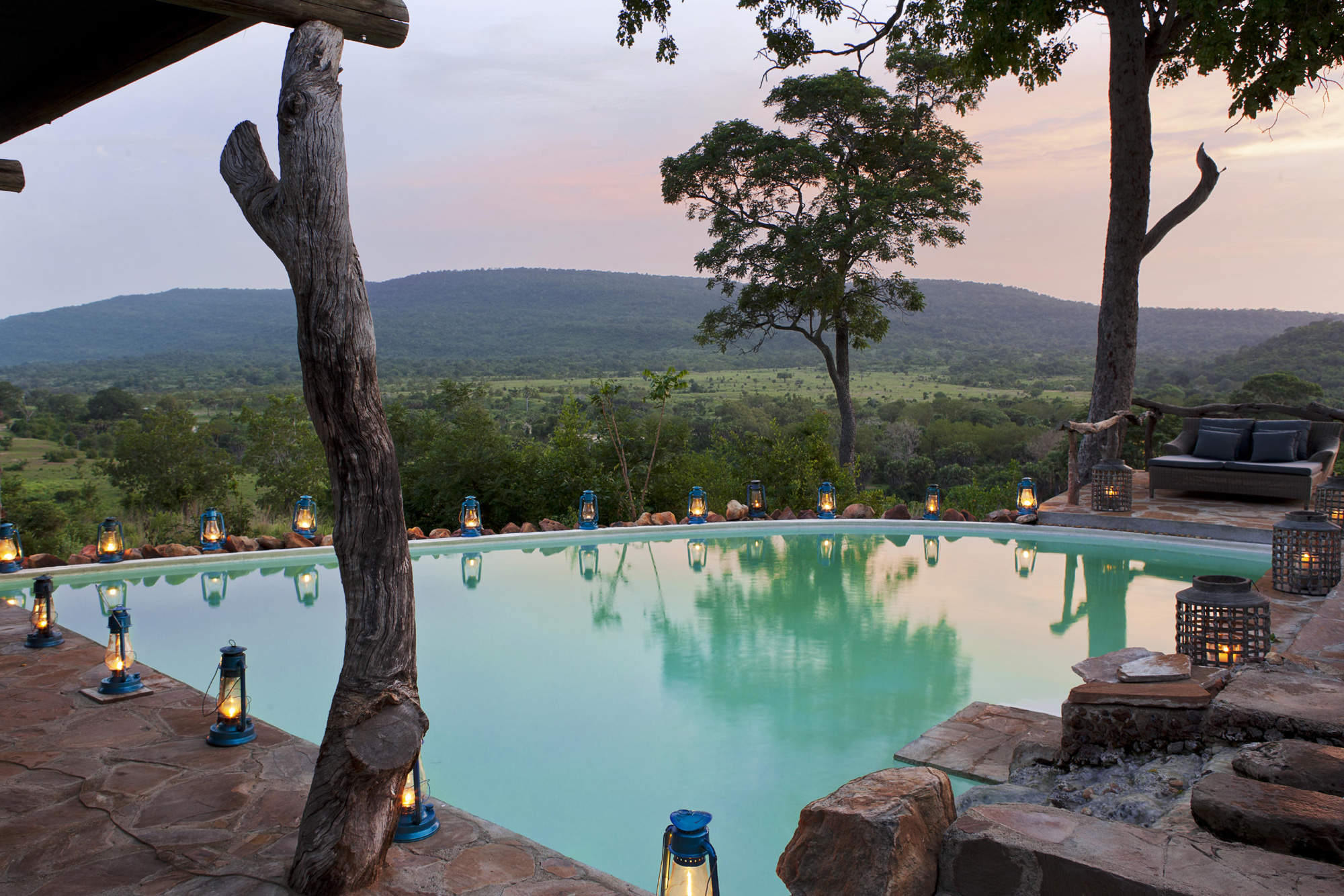
Beho Beho
Beho Beho is one of the best camps we work with in Africa, with gracious hosts, fantastic food and most importantly, excellent guiding.
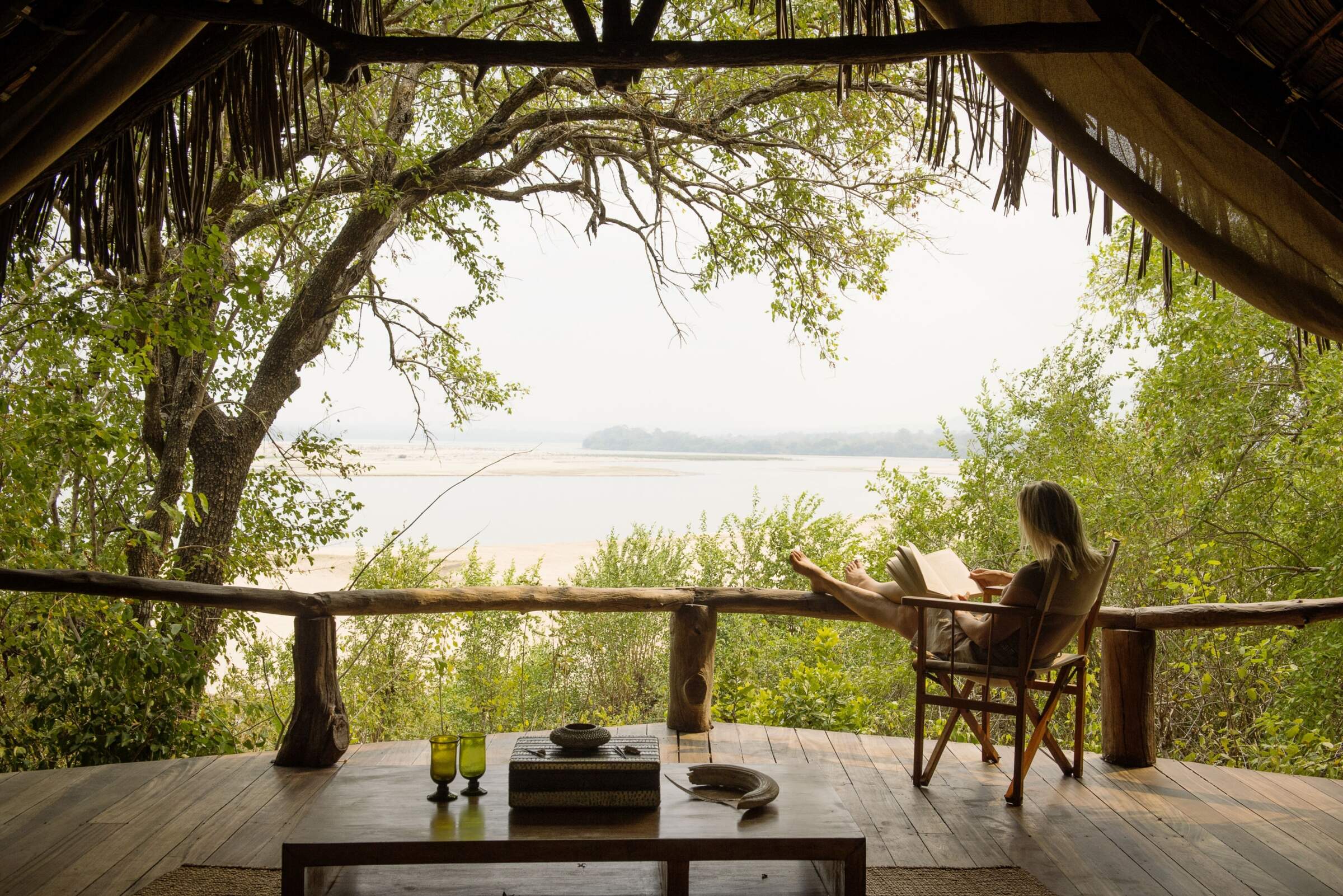
Sand Rivers Camp
The stylishly put together Sand Rivers has an outstanding reputation, with a wonderful location on the Rufiji River and great guides.
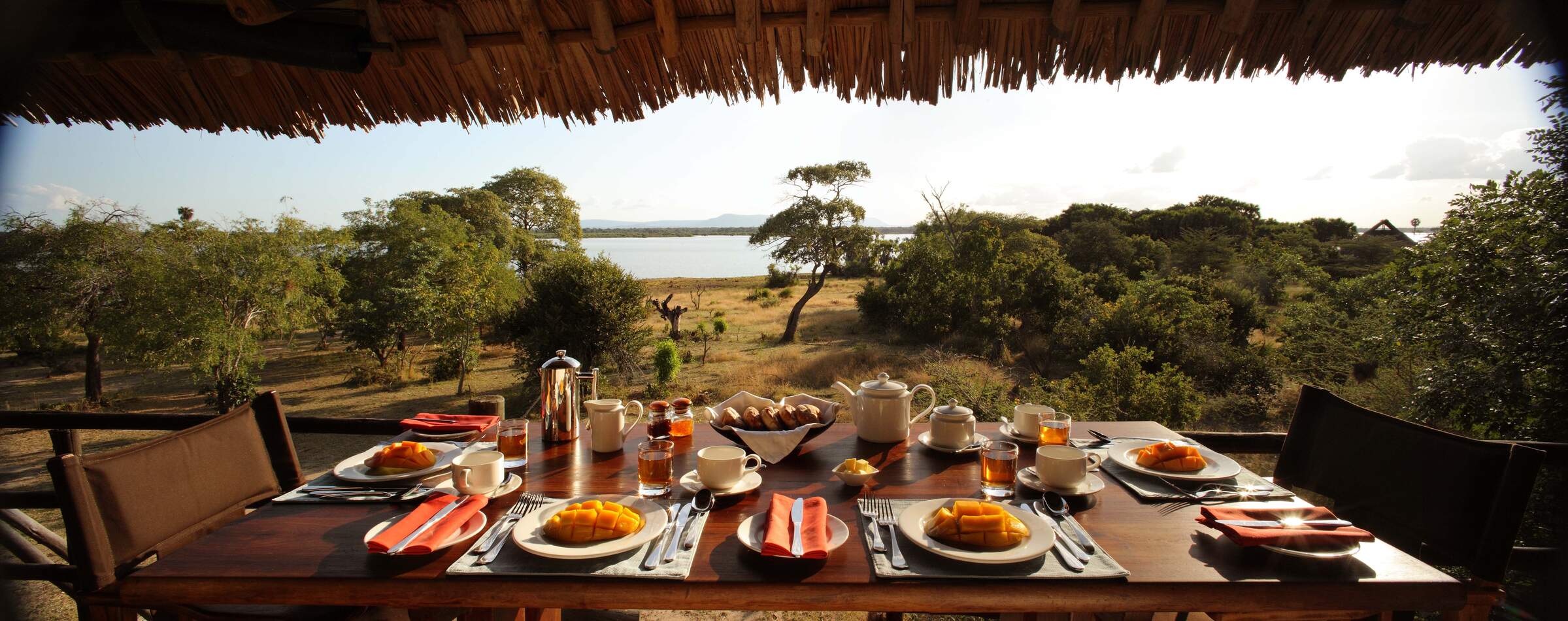
Siwandu
Siwandu is a luxurious and smoothly run camp with beautiful rooms and superb service offering great views over Lake Nzerakera.
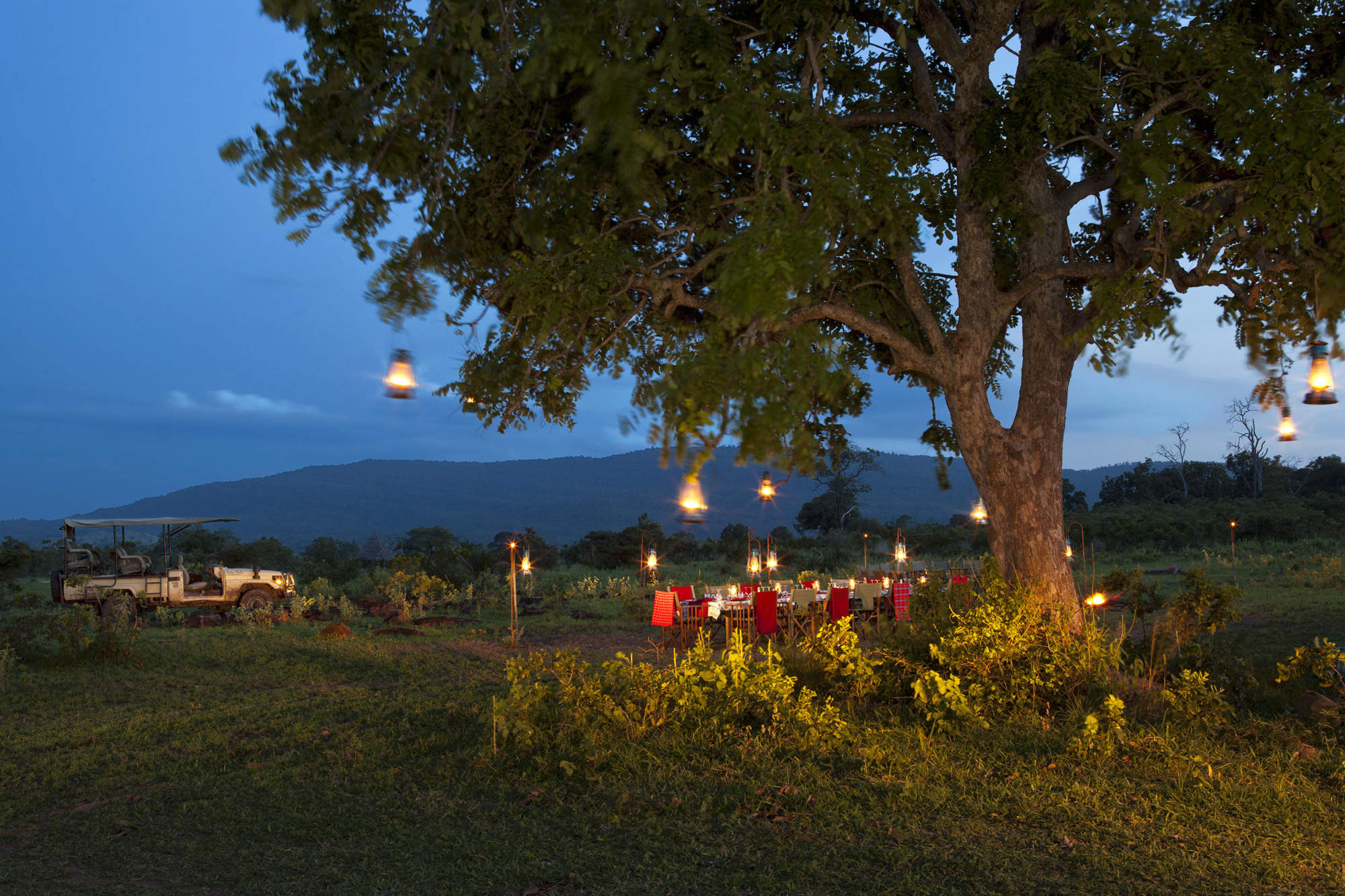
Beho Beho Tree-house
Beho Beho Treehouse is a satellite tree platform for just one couple, managed by Beho Beho and ideal as a one-night honeymoon retreat
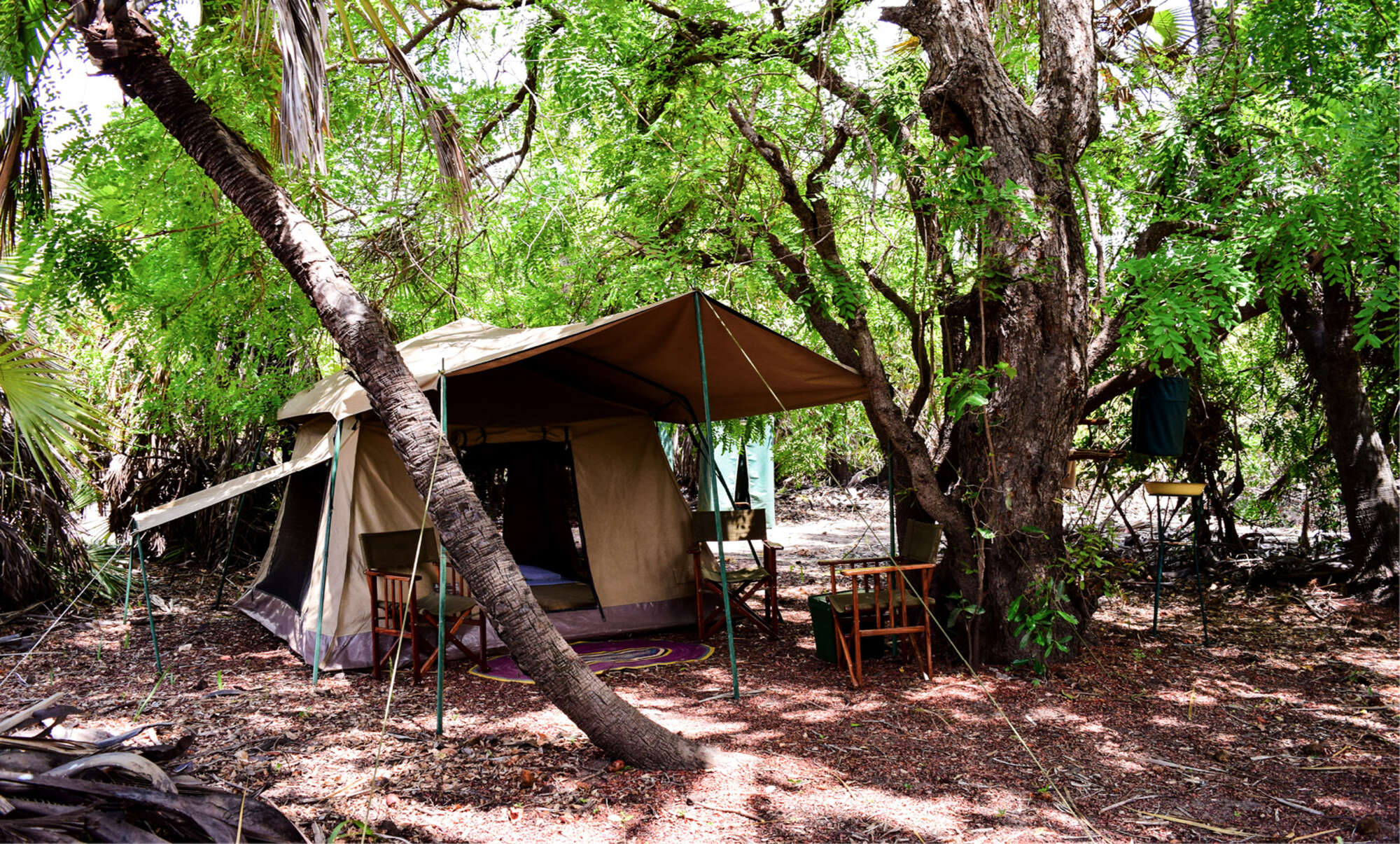
Impala fly-camping
While you're staying at Impala Camp in Nyerere National Park, you can enjoy a few nights' fly-camping in the heart of the bush.
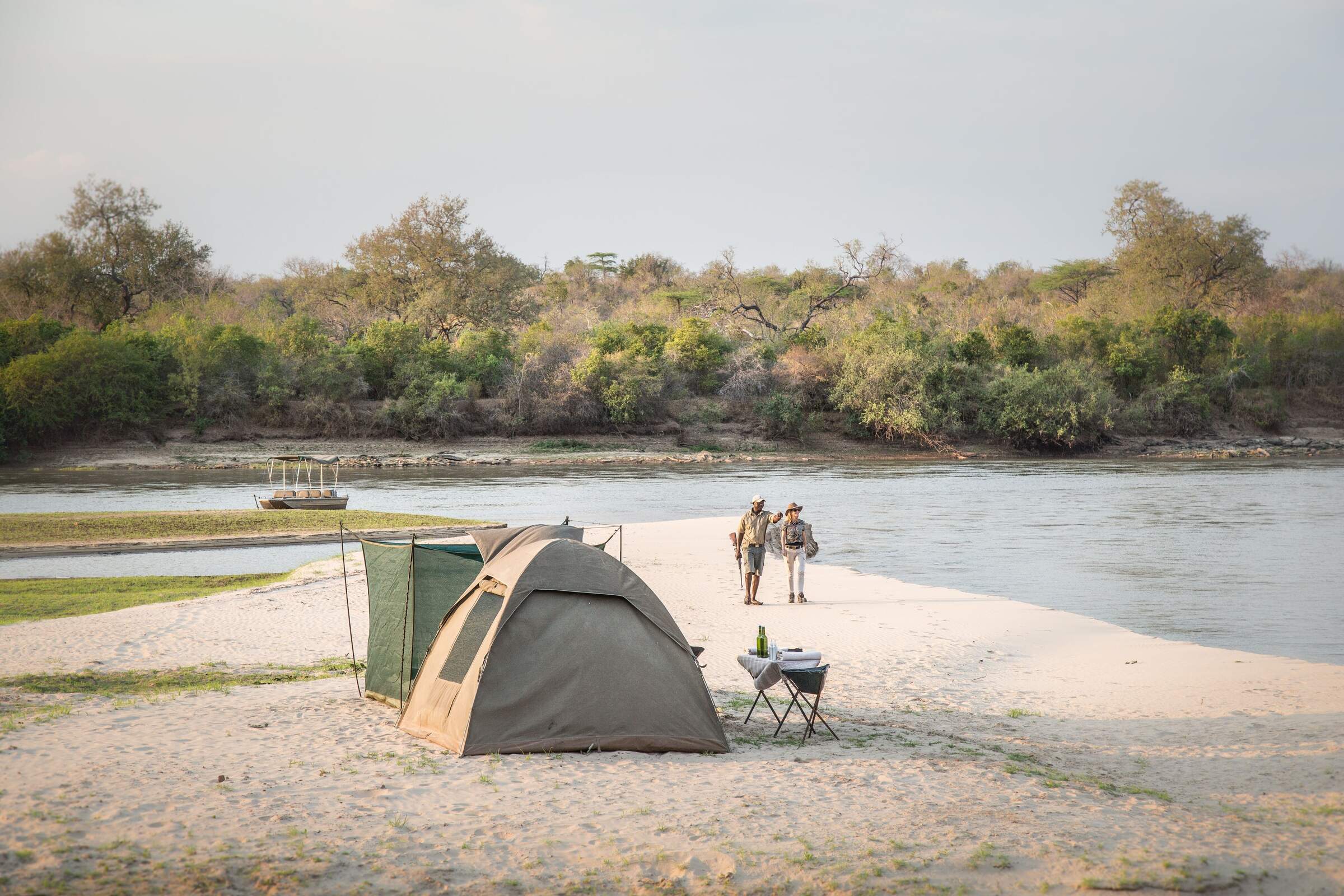
Sand Rivers fly-camp
Sand Rivers fly-camping safaris in Tanzania's Nyerere National Park operate out of Sand Rivers Camp, on the Rufiji River.
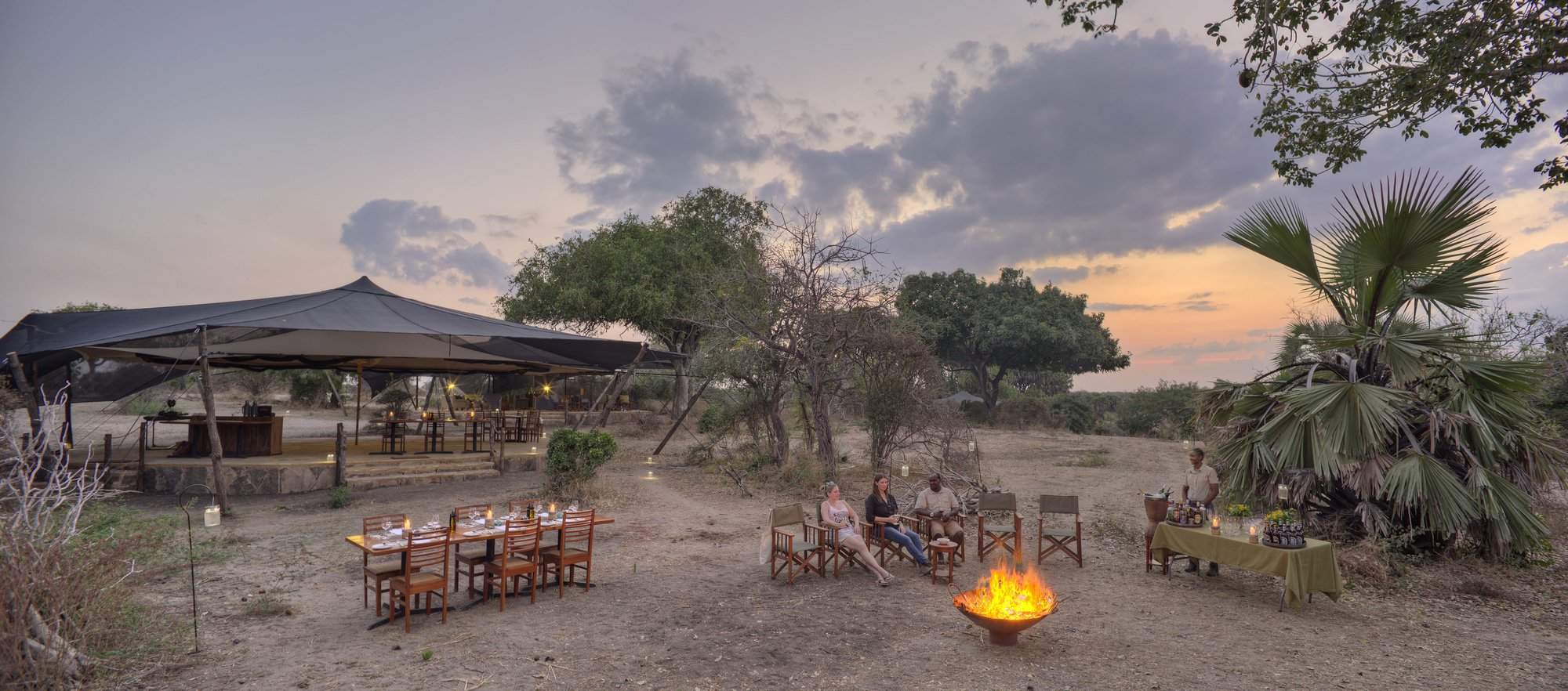
Roho ya Selous
Roho ya Selous is a smart tented camp on the west side of lake Nzerakera, close to the park’s best wildlife-viewing areas.
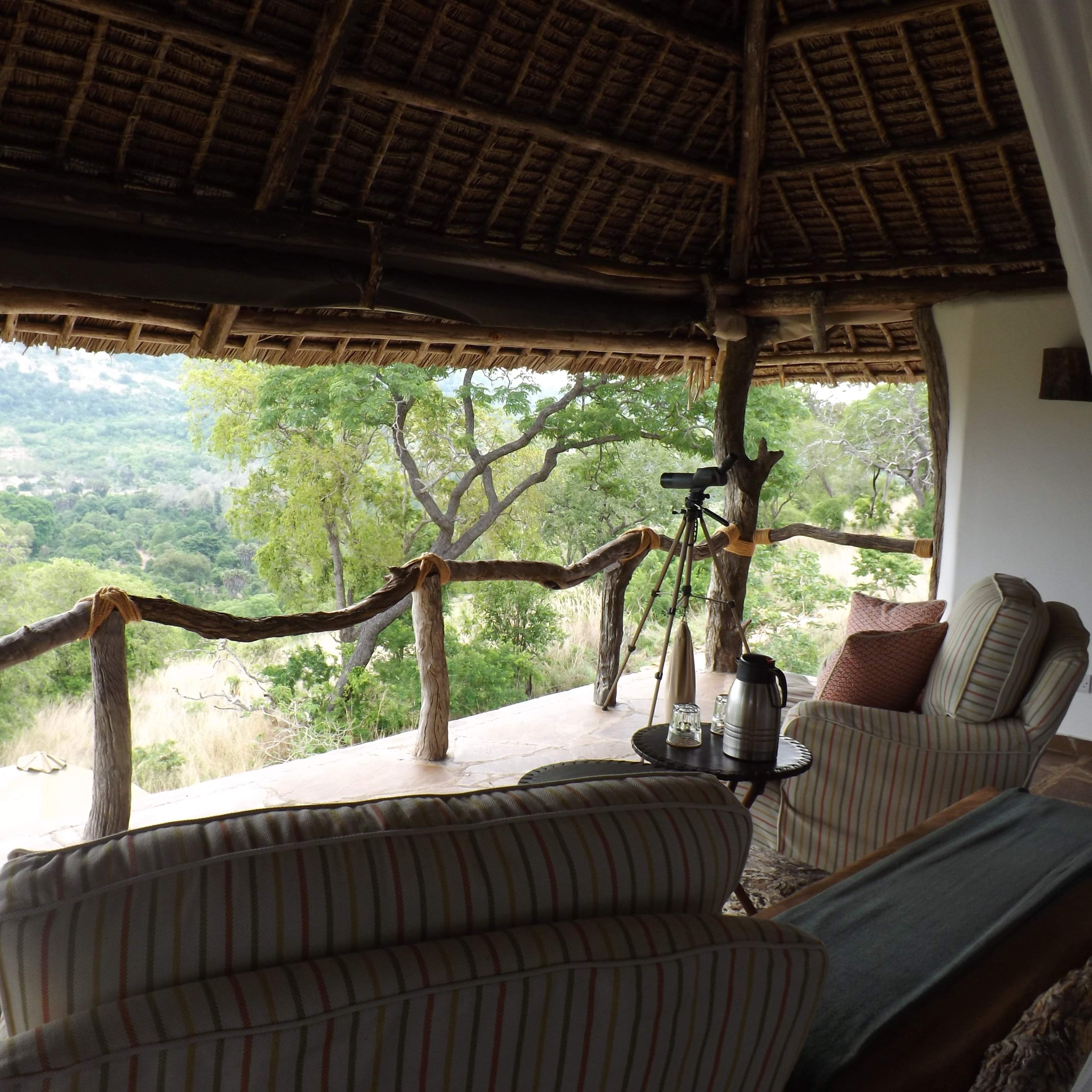
Beho Beho Bailey's Banda
Bailey's Banda at Beho Beho is a luxurious safari lodge in Nyerere National Park which can be booked exclusively for you and your party.
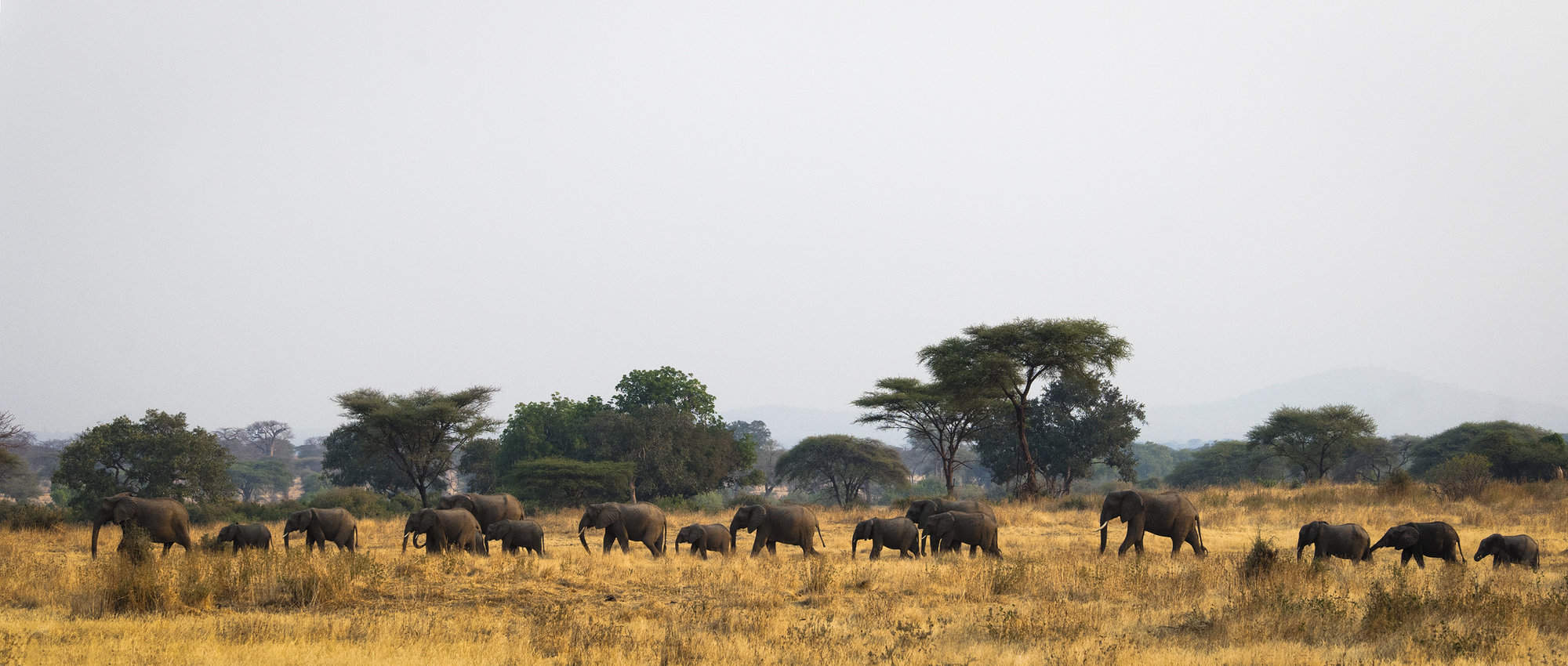
Rufiji River fly-camp
Fly-camping trips can be organised from Rufiji River Camp in Tanzania's Nyerere National Park
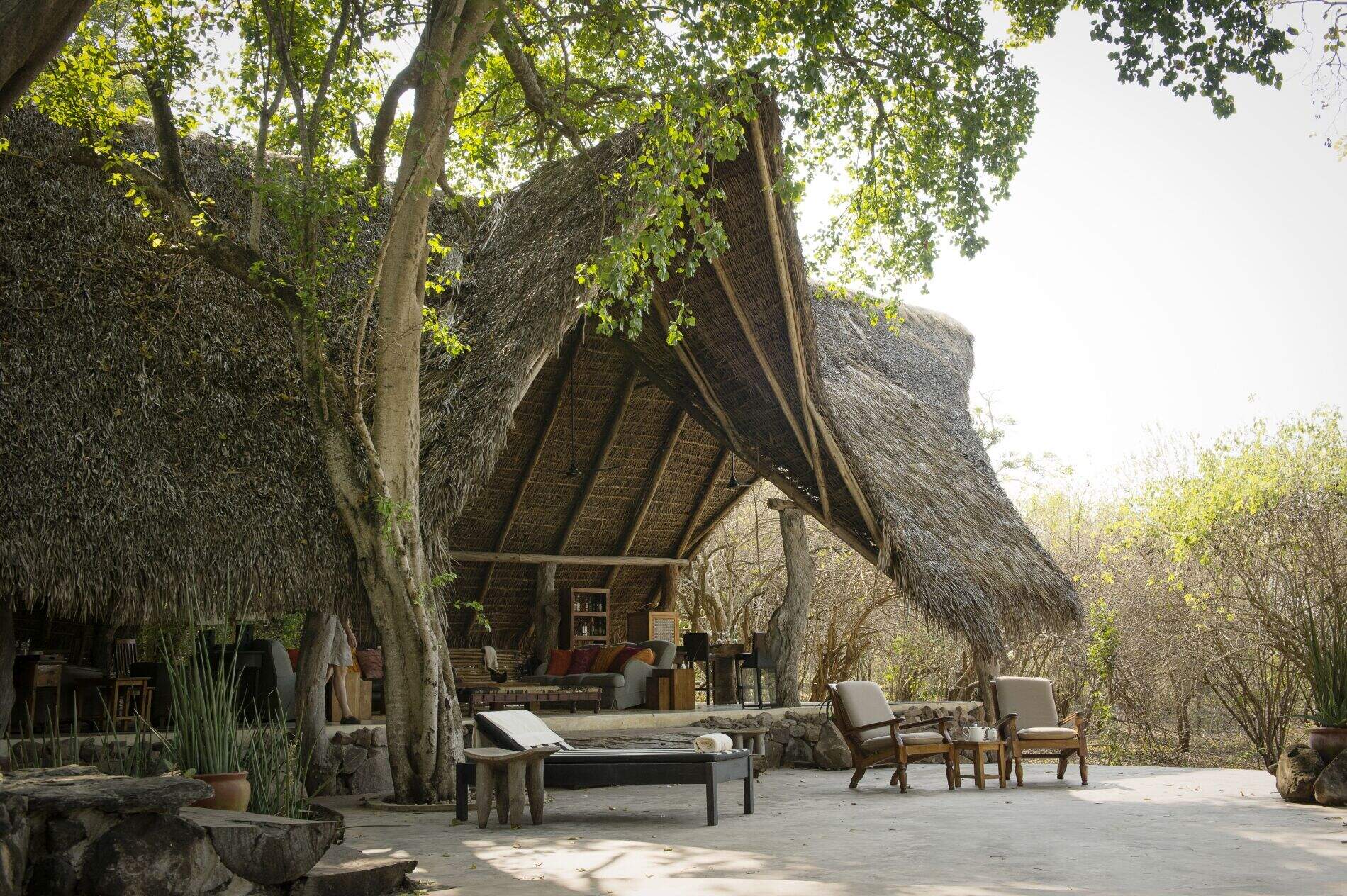
Kiba Point
Kiba Point is the private sister camp of Sand Rivers, available on an exclusive basis, with its own private drivers and staff.
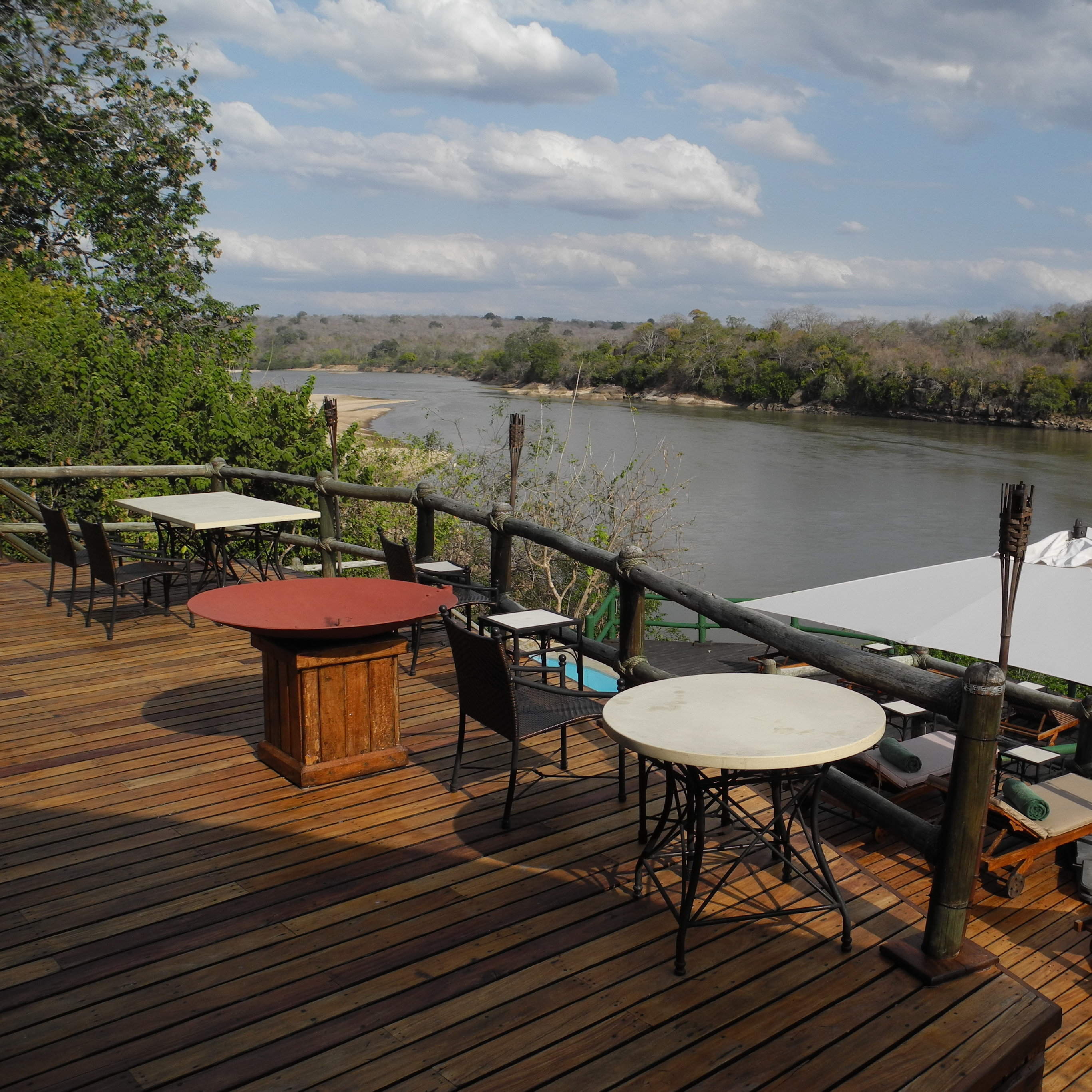
Mivumo River Lodge
Mivumo River Lodge is Serena's main lodge in the Selous. Although comfortable, the windows and air-conditioning dispel any wilderness feel.
When to go to Nyerere National Park
Our month by month guide: What it's like to visit Rufiji River Camp in Nyerere National Park
Jan
Feb
Mar
Apr
May
Jun
Jul
Aug
Sep
Oct
Nov
Dec
Tanzania in January
January usually marks the start of the short dry season, although the exact timings of this are a little unpredictable. You can expect clear blue skies and sunshine, if the short rains have stopped, and the temperatures will be building. The short dry season is a little less pronounced in Southern Tanzania, and so it can still be wet in these areas. It is an interesting time for avians as resident birds go into breeding plumage and migrant species can be present.
Once the New Year busy period has quietened down, January can offer great value and quieter parks, although the weather can be variable, and in the Selous and Ruaha the wildlife is more dispersed.
- Variable weather: clear & dry or cloudy with some rain.
- Occasional thunderstorms may occur.
- A good time of year for birding as and many migrant species are around
- The wildebeest migration is gathering in the southern Serengeti.
- Busy in early January, quietening down through the month.
Our view
A good time to visit, with pros & cons
Weather in January
Tanzania in February
February is during the short dry season and is one of the hottest months in Tanzania, with temperatures reaching around 33°Celsius. This can be a good time to visit, as some areas of the Northern Circuit are comparatively quieter than during the European summer months, and lodge rates are also a little lower.
The wildebeest will typically be on the southern plains of the Serengeti for their calving season, which tends to occur in a 2-3 week window in early-mid February – although this does vary year on year. This is also a particularly rewarding time for birdlife, as northern hemisphere migrants join the resident species.
- Hot and dry weather.
- Wildebeest migration calving on Serengeti’s southern plains.
- Ngorongoro Crater and southern Serengeti busy for the migration.
- Selous and Ruaha are typically quiet at this time.
- The parks are likely to be lush and green, leading to pretty landscape
Our view
A very good time to visit
Weather in February
Tanzania in March
The heavier ‘long rains’ start in earnest in March although exactly when varies year on year. With no need to stay close to permanent water sources, migratory wildlife disperses, and so game viewing starts to become more challenging. This is most prominently seen in Tarangire National Park. The wildebeest migration may still be calving, or have moved on into the central regions of the Serengeti.
Many of the camps in the southern parks close mid March and mobile tented camps in the Serengeti will wind down towards the end of the month in order to move location or carry out refurbishments, ready for the new tourist season.
- Hot with building humidity, before the rains begin at some point.
- Wildlife viewing is variable depending on the start of the rains.
- Parks are quiet and rates are low.
- Not great for southern or western Tanzania.
- March can be a good time for birding, with many migrant species.
Our view
A good time to visit, with pros & cons
Weather in March
Tanzania in April
April is in the middle of the long rainy season and is the wettest month, with on average 250mm of rain. Temperatures are fairly high and humid in comparison to the rest of the year. Expect the bush to be lush and flowering, and alive with insects, birds and smaller animals. It is however also dense, allowing wildlife to hide, which in turn makes game viewing harder. This is a very quiet time in terms of visitor numbers.
Many of the tented camps are closed in April, however the larger lodges remain open. The rates are significantly cheaper, and so if you are willing to work harder to spot the bigger game, some accommodation bargains can be had.
- Heavy rain expected, with impressive thunderstorms and lightning.
- Many camps closed and roads impassable due to ground conditions.
- Rates are at their lowest all year round, with very few other tourists
- Places that are open are green and vibrant, wildlife more dispersed.
Our view
This is not a great time to visit
Weather in April
Tanzania in May
As Tanzania is close to the equator there is no dramatic difference in climate throughout the year, but temperatures do start to drop a little in May. The rains are likely to still be present, although potentially clearing towards the end of the month. Visitor numbers and lodge rates are still low. The wildebeest migration is making its way through the western regions of the Serengeti, crossing the Grumeti River.
Virtually all camps in southern Tanzania remain closed, and many of the roads and tracks in the Selous become impassable.
- Heavy rains and storms are likely, this can create some dramatic skies
- Blissfully quiet in northern Tanzania, and a good time to avoid crowds
- The parks are likely to look lush and green, with long grass.
- Wildlife is likely to be more dispersed, with fewer sightings.
- The low prices make safaris much more affordable at this time.
Our view
This is not a great time to visit
Weather in May
Tanzania in June
The rains come to an end at some point during the month and migratory wildlife begins to be drawn back to perennial water sources as the land starts to dry up. It’s likely that the parks will still be quite green and the grass high though, so walking and fly-camping may be unlikely. This marks the start of the season with camps reopening, but prices are still more affordable than the subsequent months.
The migration may still be in the Western Corridor, or on the move northwards towards the Mara River. Western Tanzania presents more challenging conditions for chimpanzee trekking in Mahale National Park, as the chimps are higher in the mountains.
- Variable weather: clear & dry or cloudy with some rain.
- A transitory time for the migration – moving from west to north.
- The parks may still be quite green, and grasses high.
- Wildlife may be dispersed still.
- Relatively low visitor numbers and good value, shoulder season prices.
Our view
A good time to visit, with pros & cons
Weather in June
Tanzania in July
July is considered to be the start of the peak season, with no rainfall expected and pleasant daytime temperatures. As the parks dry, the wildlife congregates in fewer areas, grass is eaten and trampled by the migration, and game viewing gets better and better. The wildebeest are typically arriving in the northern Serengeti, ready to begin their period of crossings of the Mara River.
In the Selous and Ruaha wildlife sightings can be fantastic, with animals gathering around the lakes and rivers. Great conditions and school holidays mean the parks are at their busiest, with Ngorongoro and the Serengeti particularly crowded.
- Dry and warm daytimes, chilly and windy in the mornings and evenings.
- Great wildlife viewing, as water sources diminish.
- The most popular time of year with very high visitor numbers.
- Prices are at their highest due to the great conditions on the ground.
- To avoid the crowds consider Tanzania’s southern parks.
Our view
Fantastic: the very best time to visit
Weather in July
Tanzania in August
August is the middle of the long dry season, with clear skies and sunny weather. You can expect some cooler weather at night and first thing in the morning. Remember to pack layered clothing, so you can wrap up warm on your early morning game drives, but remain comfortable as it heats up throughout the day.
August is a very popular time to visit, so accommodation prices are at their highest and advanced booking is necessary. It can get noticeably busier in some of the northern parks – in particular the Ngorongoro Crater and northern Serengeti, as visitors flock to the area in hope of witnessing an exciting migration river crossing.
- Dry and warm daytimes, chilly in the early mornings and evenings.
- General wildlife viewing should be excellent.
- An exciting time of year for the wildebeest migration.
- Certain areas will be very busy and camps fill up fast.
- Great wildlife sightings in the Selous and Ruaha, and fewer people.
Our view
Fantastic: the very best time to visit
Weather in August
Tanzania in September
September can be an excellent time of year to visit Tanzania. As the parks continue to dry up the wildlife becomes increasingly reliant on the remaining water sources, leading to high densities of animals. Whilst early September can be busy, with fewer families traveling at this time the parks typically become quieter as the month goes on.
You are still likely to see the wildebeest migration in the northern Serengeti, with river crossings occurring on a regular basis. Tanzania’s southern parks are also fantastic at this time of year, generally receiving far fewer visitors than the north, and wildlife sightings can be great. Prices remain high and the weather generally remains good.
- Wildlife viewing in September can be fantastic.
- Whilst still fairly busy, often the parks are typically a little quiet
- The parks will start to become very dry, with little new vegetation
- Cooler mornings and evenings, warming up during the day.
- Prices remain high.
Our view
Fantastic: the very best time to visit
Weather in September
Tanzania in October
At the tail end of the dry season, the wildlife should be the easiest to spot, although photographers should be aware that it can be a bit dusty at this time of year, as there has been no rain for several months. Great general wildlife viewing throughout as animals are attracted to remaining sources of water. Elephant numbers are particularly high at this time in Tarangire, and Mahale and Katavi are especially rewarding with frequent wildlife sightings close to camp.
There is a chance of rainfall towards the end of the month, if the short rains commence. While prices remain high, visitors numbers are significantly lower than in July-August.
- Mostly dry and temperatures comfortably warm, with the chance of storm
- Great game viewing although the landscape can be a bit barren.
- Much lower visitor numbers than the earlier months.
Our view
A very good time to visit
Weather in October
Tanzania in November
In November you can expect the start of the short rains, although the start date varies every year. The rains are highly localised, and are much lighter and more unpredictable than the long rains that occur earlier in the year. These should not really interfere with your safari – as the game viewing at this time is still good - but you should pack a waterproof jacket and be prepared for some short rain showers!
The majority of tented camps remain open, but some of the mobile camps in Northern Tanzania will close for the latter half on the month. Given the seasonality, camps are charging shoulder season rates so there are often some bargains to be had. Early November can offer great value for money and the weather conditions are likely to be comparable to late October.
- Variable weather: clear & dry or cloudy with some rain.
- Parks are comparatively quiet and prices at the lower end.
- Some camps will close towards the end of the month for maintenance.
- Good wildlife sightings, but animals will disperse when rain starts
- The wildebeest migration is on the move and the location unpredictable
Our view
A good time to visit, with pros & cons
Weather in November
Tanzania in December
December is also during the short rainy period, but this does not stop Tanzania being a popular destination to spend the festive period. Be aware that many of the lodges book up early, and charge peak rates over this time. Advanced booking is essential over this period, especially if travelling in larger family groups.
Travelling in December outside of the festive period allows travellers to make use of excellent shoulder season rates. Temperatures are pleasant with the averages of 27Celsius, although there is the chance of intermittent thunderstorms.
- Variable weather:clear & dry or cloudy with some rain and thunderstorm
- Good general game viewing in parks with low seasonality - Serengeti.
- Very quiet early in the month, becoming exceptionally busy.
- Prices reflect this – great value rising to the highest they are.
- The wildlife in southern Tanzania is more dispersed.
Our view
A good time to visit, with pros & cons
Weather in December

Looking for inspiration on where to travel next?
Visit our trip chooser to explore your options and find inspiration for your perfect African adventure
Inspire me